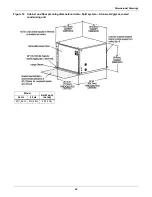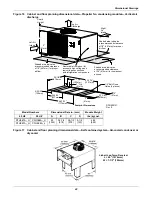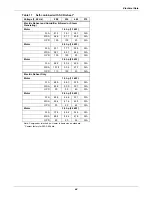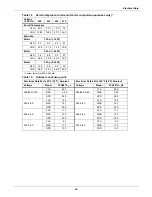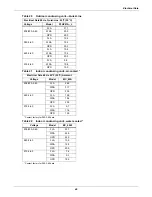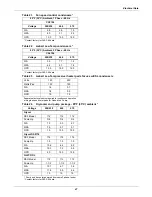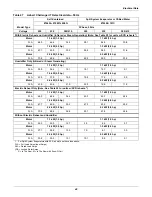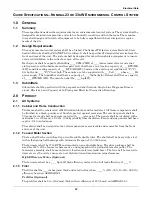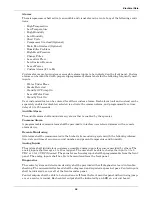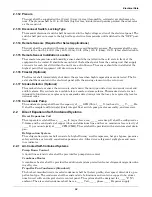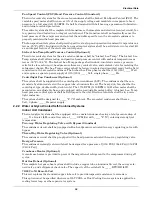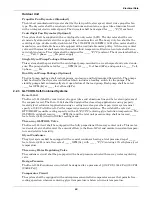
Electrical Data
54
Alarms
The microprocessor shall activate an audible and visual alarm in event of any of the following condi-
tions:
• High Temperature
• Low Temperature
• High Humidity
• Low Humidity
• Short Cycle
• Compressor Overload (Optional)
• Main Fan Overload (Optional)
• Humidifier Problem
• High Head Pressure
• Change Filter
• Loss of Air Flow
• Low Suction Pressure
• Loss of Power
• Custom Alarm (#1 to #4)
Custom alarms are four customer accessible alarm inputs to be indicated on the front panel. Custom
alarms can be identified with prepared (programmed) alarm labels for the following frequently used
inputs:
• Water Under Floor
• Smoke Detected
• Standby GC Pump On
• Loss of Water Flow
• Standby Unit On
User customized text can be entered for two of the four custom alarms. Each alarm (unit and custom)
can be separately enabled or disabled, selected to activate the common alarm, and programmed for a
time delay of 0 to 255 seconds.
Audible Alarm
The audible alarm shall annunciate any alarm that is enabled by the operator.
Common Alarm
A programmable common alarm shall be provided to interface user selected alarms with a remote
alarm device.
Remote Monitoring
All alarms shall be communicated to the Liebert monitoring system with the following information:
date and time of occurrence, unit number, and present temperature and humidity.
Analog Inputs
The system shall include four customer accessible analog inputs for sensors provided by others. The
analog inputs shall accept a 4 to 20 mA signal. The user shall be able to change the input to 0 to 5
VDC or 0 to 10 VDC if desired. The gains for each analog input shall be programmable from the front
panel. The analog inputs shall be able to be monitored from the front panel.
Diagnostics
The control system and electronic circuitry shall be provided with self-diagnostics to aid in trouble-
shooting. The microcontroller board shall be diagnosed and reported as pass/not pass. Control inputs
shall be indicated as on or off at the front monitor panel. Control outputs shall be able to be turned on
or off from the front monitor panel without using jumpers or a service terminal. Each control output
shall be indicated by an LED on a circuit board.
Data Collection

